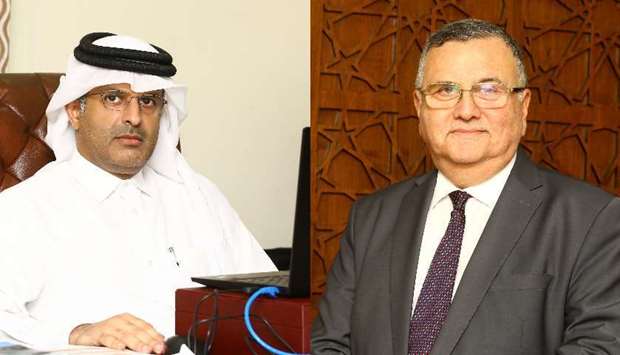The creation of a national agency for cybersecurity stresses the importance that Qatar is placing on efforts to protect data privacy in all sectors, an official of the Qatar International Centre for Conciliation and Arbitration (QICCA) has said.
QICCA board member for International Relations Sheikh Dr Thani bin Ali al-Thani said, “Amiri Decision No 1 of 2021 to establish the National Agency for Cybersecurity is a vital line of defence to protect sensitive data and enhance privacy in all information communicated and exchanged between entities or individuals.”
According to Sheikh Thani, the establishment of the agency “comes within the framework of updating legislation to keep pace with fast-paced developments in the cyber world and to face emerging threats and risks. It also aims to unify the vision and efforts to secure the country’s cyberspace and to maintain national cybersecurity.”
Speaking to Gulf Times in an exclusive interview, Sheikh Thani said this decision would play a vital role in arbitration proceedings, almost many of which are been conducted virtually due to the Covid-19 pandemic. Since the pandemic, many arbitration hearings are being held online, explained Sheikh Thani, who stressed that there is a need to protect information that is being coursed online or through video conferencing platforms.
“Cybersecurity in arbitration is very important because some documents are submitted through email, websites, or similar online portals, hence the need to protect the privacy of the content and information related to the company or party that had sent the information,” Sheikh Thani said.
Citing Amiri Decision No 1 of 2021, QICCA general counsel Dr Minas Khatchadourian emphasised that Qatar is establishing “a very strong system” to defend the privacy of data and to combat cybercrimes.
According to Khatchadourian, Qatar had implemented the National Cyber Security Strategy in 2014. He said the strategy represented “a roadmap towards enhancing cybersecurity in Qatar by establishing and maintaining a secure cyberspace to safeguard national interests and preserve the fundamental rights and values of Qatar’s society.”
“The strategy has five objectives: to safeguard the national critical information infrastructure; to respond to, resolve, and recover from cyber incidents and attacks through timely information sharing, collaboration, and action; to establish a legal and regulatory framework to enable a safe and vibrant cyberspace; to foster a culture of cybersecurity that promotes safe and appropriate use of cyberspace; and to develop and cultivate national cybersecurity capabilities,” Khatchadourian said.
He added: “Countries across the globe are establishing policies that would protect data privacy and cybersecurity because the direction now is towards online. Governments and even ordinary people are now relying more on the Internet in going about their day-to-day activities.
“Because of this, confidential and private data are exposed to unscrupulous individuals or organisations that want to take advantage of the information. Governments have sensitive data on the military, economy, finance, and health sectors, to name a few, so there is a need to protect information by putting in place safety nets and cybersecurity.”


